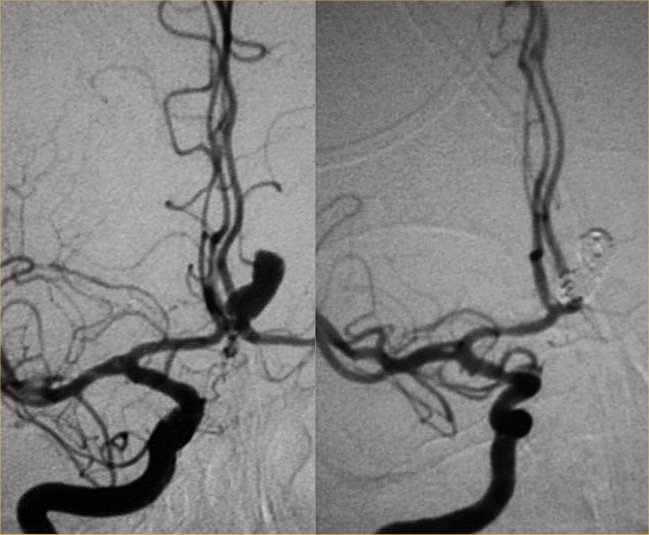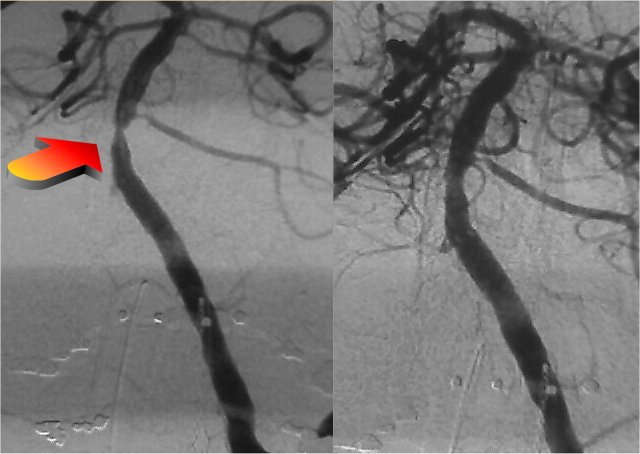Interventional neuroradiology
Neurointerventional Surgery (NIS)/ Interventional Neuroradiology (INR) is an Accreditation Council for Graduate Medical Education (ACGME) accredited medical subspecialty specializing in minimally invasive image-based technologies/procedures used in diagnosis and treat diseases of the head, neck, and spine.
First accredited in 2000, there are currently more than 500 individuals in the United States who have an active interest and special competency in this field. In 2007 the specialty changed its name from Interventional Neuroradiology to Neurointerventional Surgery. The American Society of Interventional & Therapeutic Neuroradiology (ASITN) changed it name to Society of Neurointerventional Surgery (SNIS).
Training
Preparatory requirements for a fellowship in Neurointerventional Surgery / Interventional Neuroradiology include successful completion of a residency in Radiology, Neurosurgery, or Neurology and one year of a diagnostic neuroradiology fellowship (preferably at the same institution as the interventional fellowship)
Interventional Neuroradiology fellowships are variable in length, but last minimally one year and focuses on the integration of clinical management and performance of endovascular surgeries of the conditions/diseases listed below. Many fellowships require a second year of training which allows participants to further hone their technical skills and assert a greater degree of influence in clinical management of patients with diseases of interest.
Diseases & Conditions


The following is a list of diseases and conditions typically treated by neurointerventionists.
- Cerebral aneurysm
- Brain arteriovenous malformation (AVM)
- Carotid-cavernous fistula (CCF)
- Dural arteriovenous fistula
- Extracranial (brachiocephalic) atherosclerosis
- Extracranial (head and neck) and paraspinal vascular malformations
- Head and neck tumors
- Intracranial atherosclerosis
- Juvenile nasopharyngeal tumor
- Meningiomas
- Nosebleeds
- Paragangliomas
- Stroke
- Spinal vascular malformations
- Traumatic vascular lesions
- Vasospasm
- Vertebral body tumors
- Vertebral body compression fractures